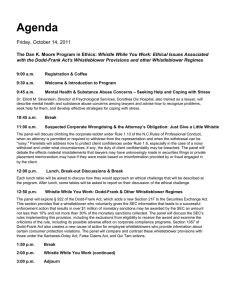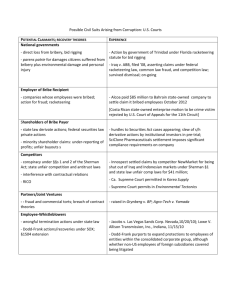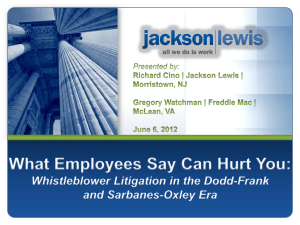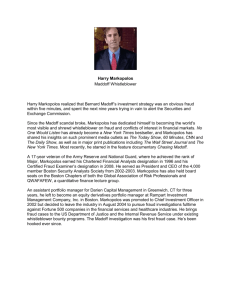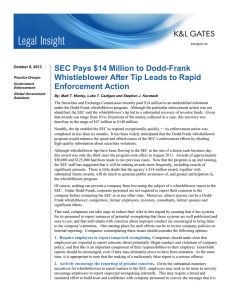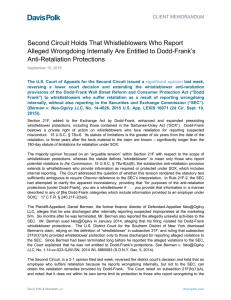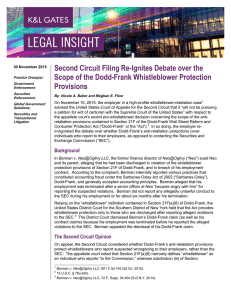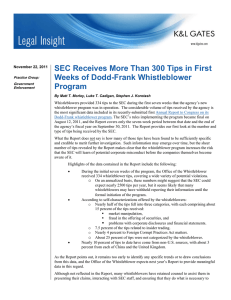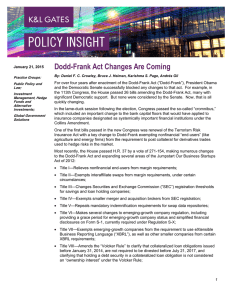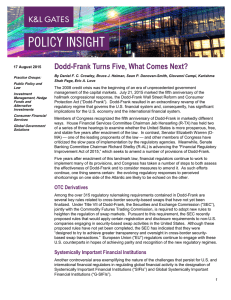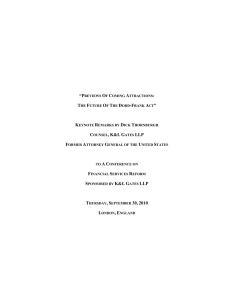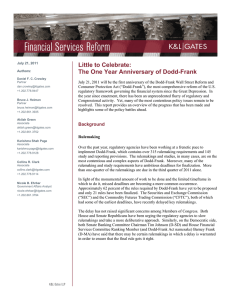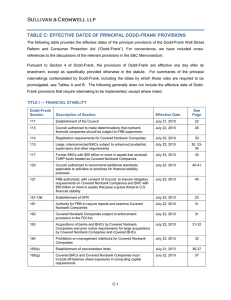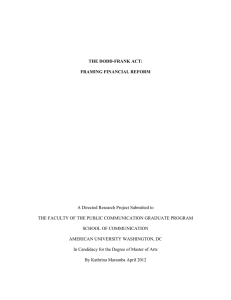Canadian Practice Law Update
advertisement
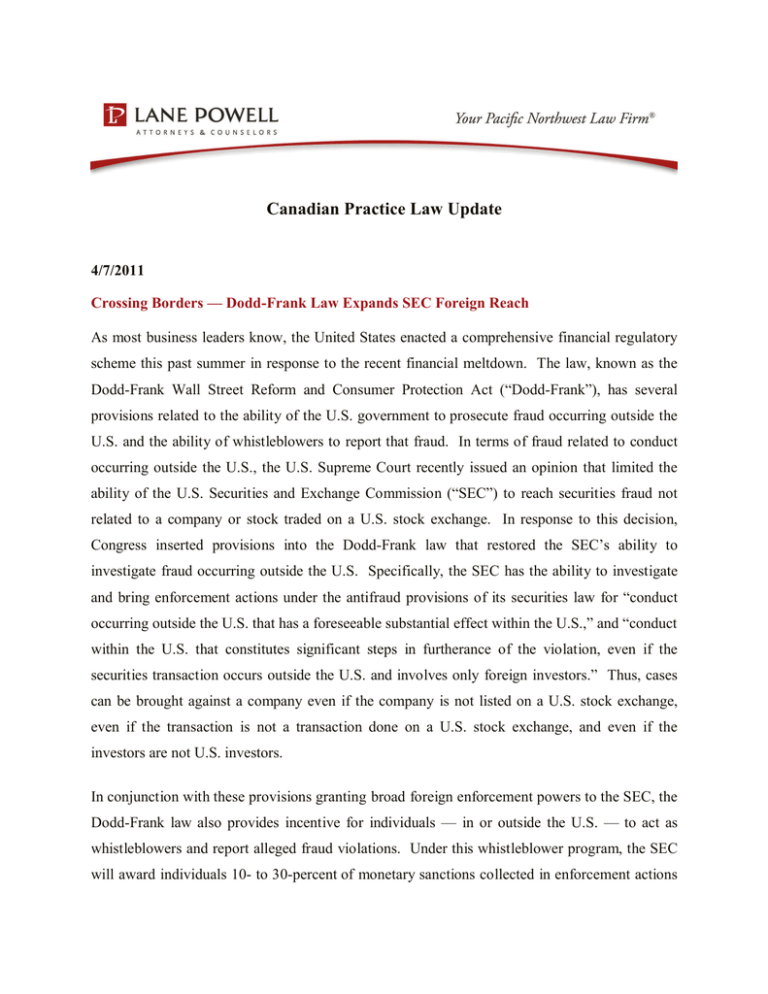
Canadian Practice Law Update 4/7/2011 Crossing Borders — Dodd-Frank Law Expands SEC Foreign Reach As most business leaders know, the United States enacted a comprehensive financial regulatory scheme this past summer in response to the recent financial meltdown. The law, known as the Dodd-Frank Wall Street Reform and Consumer Protection Act (“Dodd-Frank”), has several provisions related to the ability of the U.S. government to prosecute fraud occurring outside the U.S. and the ability of whistleblowers to report that fraud. In terms of fraud related to conduct occurring outside the U.S., the U.S. Supreme Court recently issued an opinion that limited the ability of the U.S. Securities and Exchange Commission (“SEC”) to reach securities fraud not related to a company or stock traded on a U.S. stock exchange. In response to this decision, Congress inserted provisions into the Dodd-Frank law that restored the SEC’s ability to investigate fraud occurring outside the U.S. Specifically, the SEC has the ability to investigate and bring enforcement actions under the antifraud provisions of its securities law for “conduct occurring outside the U.S. that has a foreseeable substantial effect within the U.S.,” and “conduct within the U.S. that constitutes significant steps in furtherance of the violation, even if the securities transaction occurs outside the U.S. and involves only foreign investors.” Thus, cases can be brought against a company even if the company is not listed on a U.S. stock exchange, even if the transaction is not a transaction done on a U.S. stock exchange, and even if the investors are not U.S. investors. In conjunction with these provisions granting broad foreign enforcement powers to the SEC, the Dodd-Frank law also provides incentive for individuals — in or outside the U.S. — to act as whistleblowers and report alleged fraud violations. Under this whistleblower program, the SEC will award individuals 10- to 30-percent of monetary sanctions collected in enforcement actions resulting from the whistleblower’s “original information.” This provides a real incentive for individuals to report fraud crimes, for example, crimes related to investor fraud or violations of the Foreign Corrupt Practices Act (the U.S. law outlawing bribery of foreign public officials). Given this expanded scope of U.S. jurisdiction and the increased financial incentives for whistleblowers, it is imperative that any Canadian company with significant ties to the U.S. (i.e., U.S.-based investors, customers, vendors or subcontractors) be well-versed in the nuances of the Dodd-Frank law. In addition, a company should have a comprehensive compliance program that minimizes the risk of misconduct in the workplace and, thereby, minimizes the risk of a whistleblower running to the U.S. government with allegations of misconduct. For more information, please contact the Canada Practice Group or the White Collar Criminal Defense, Regulatory Compliance and Special Investigations Practice Group at Lane Powell: canadianlaw@lanepowell.com This is intended to be a source of general information, not an opinion or legal advice on any specific situation, and does not create an attorney-client relationship with our readers. If you would like more information regarding whether we may assist you in any particular matter, please contact one of our lawyers, using care not to provide us any confidential information until we have notified you in writing that there are no conflicts of interest and that we have agreed to represent you on the specific matter that is the subject of your inquiry. Copyright © 2011 Lane Powell PC Seattle | Portland | Anchorage | Olympia | Tacoma | London 2
